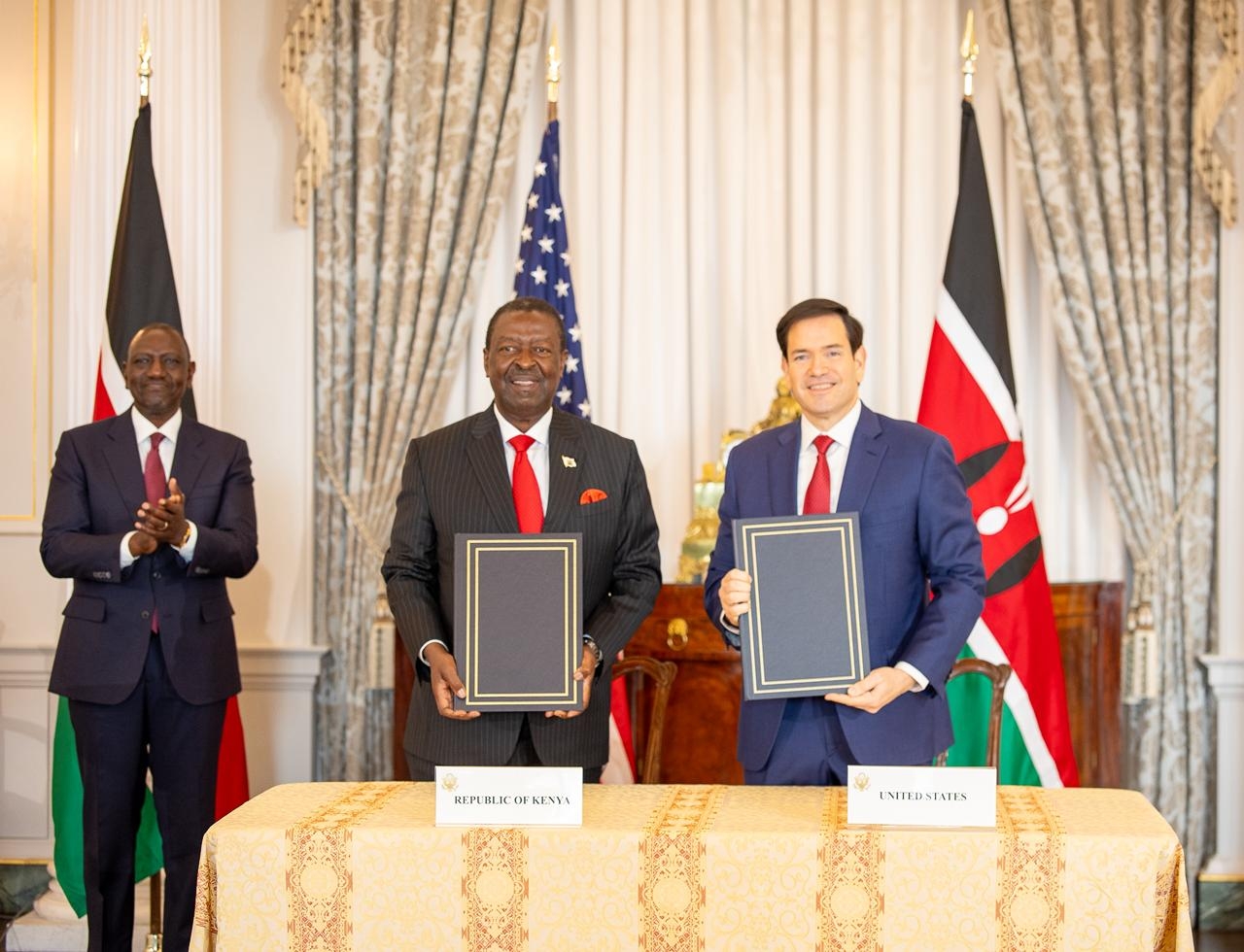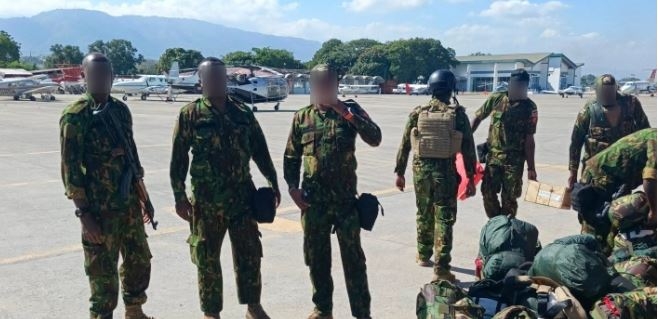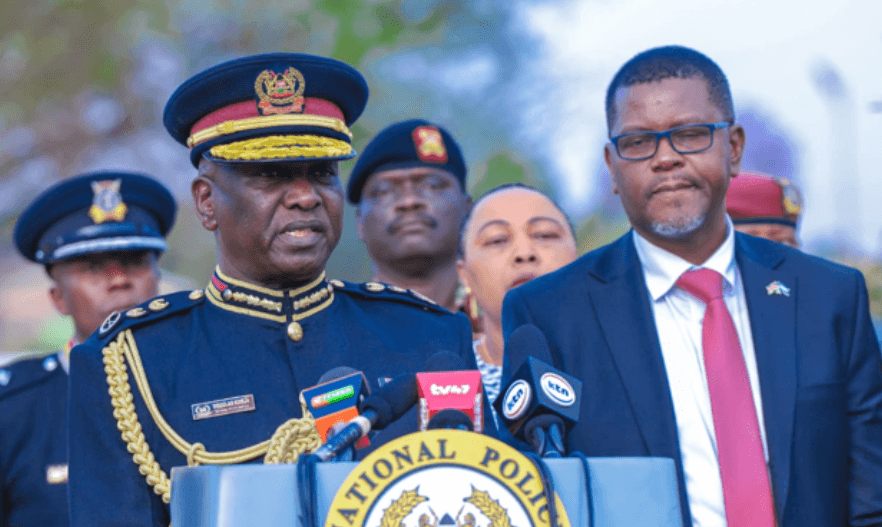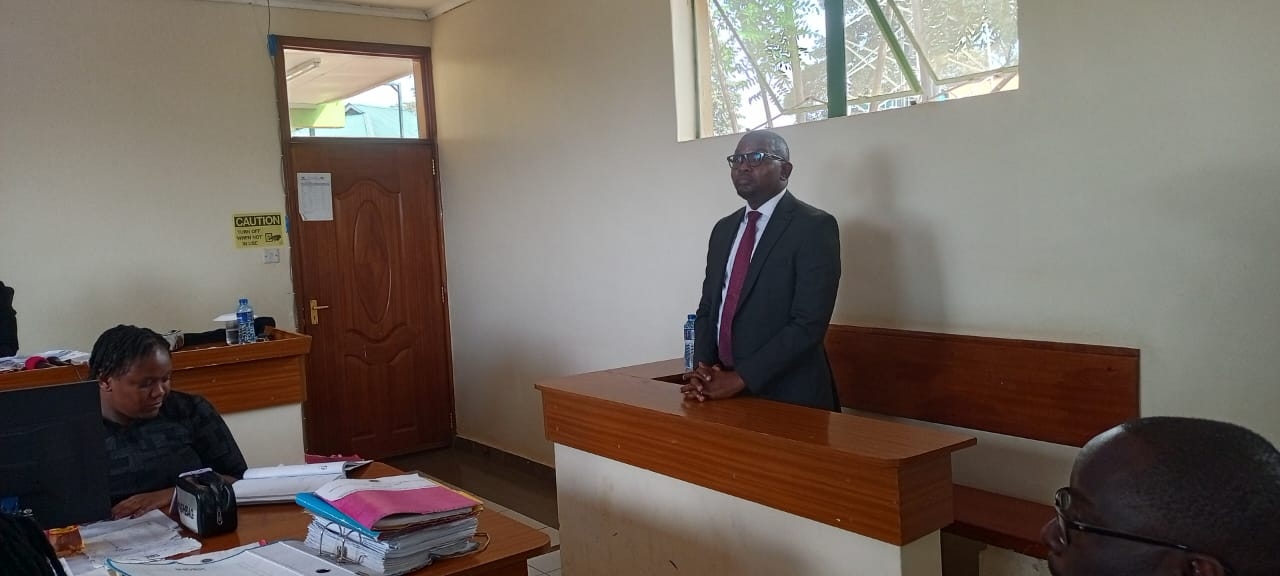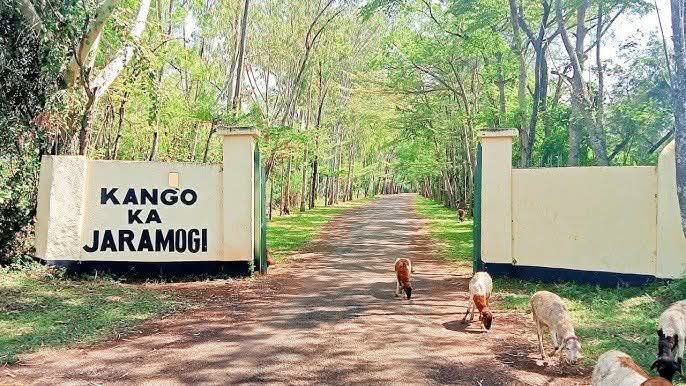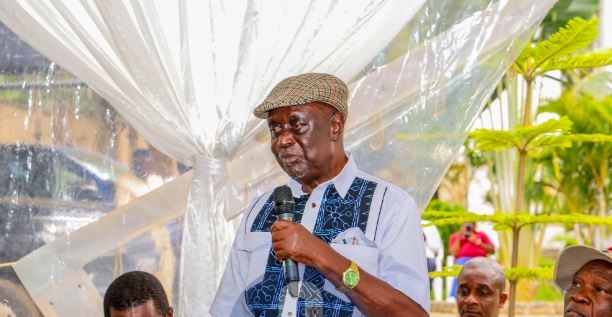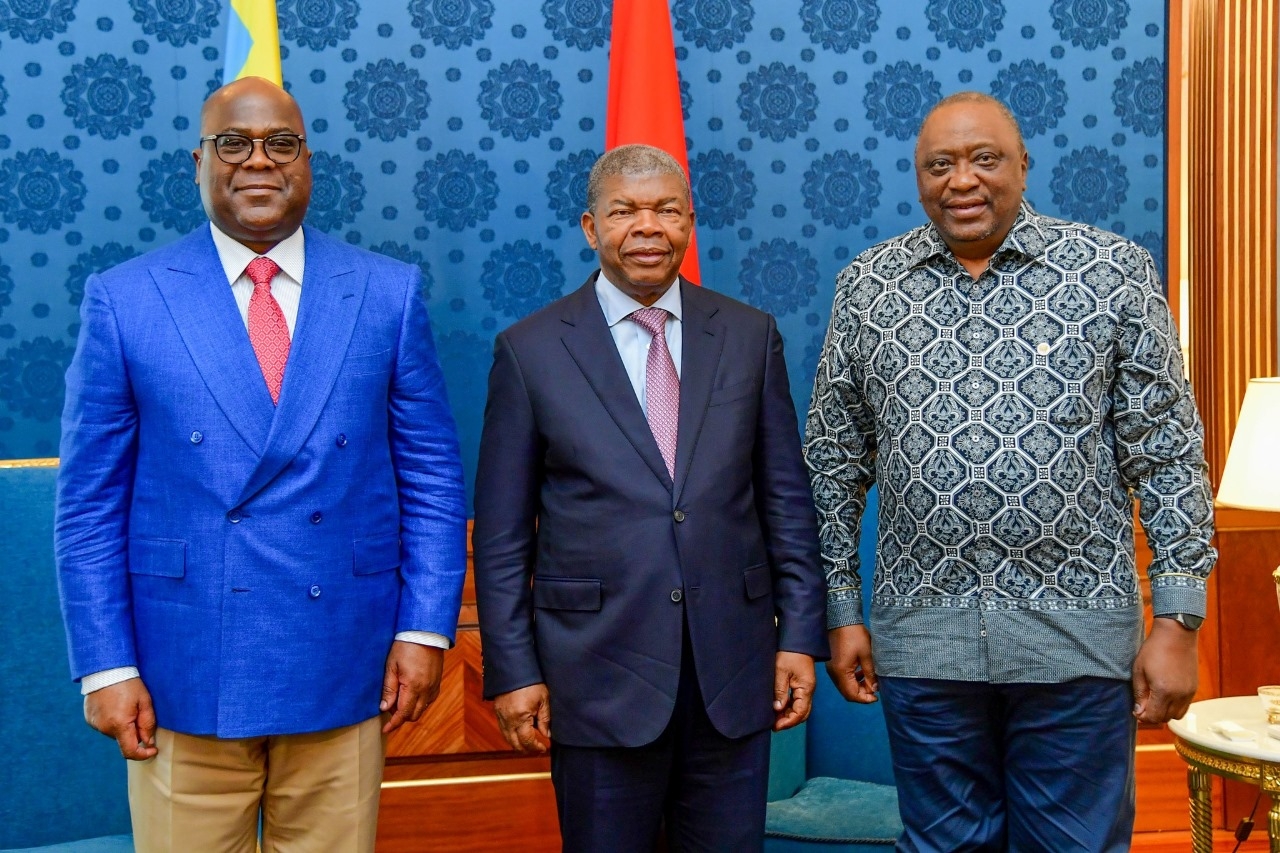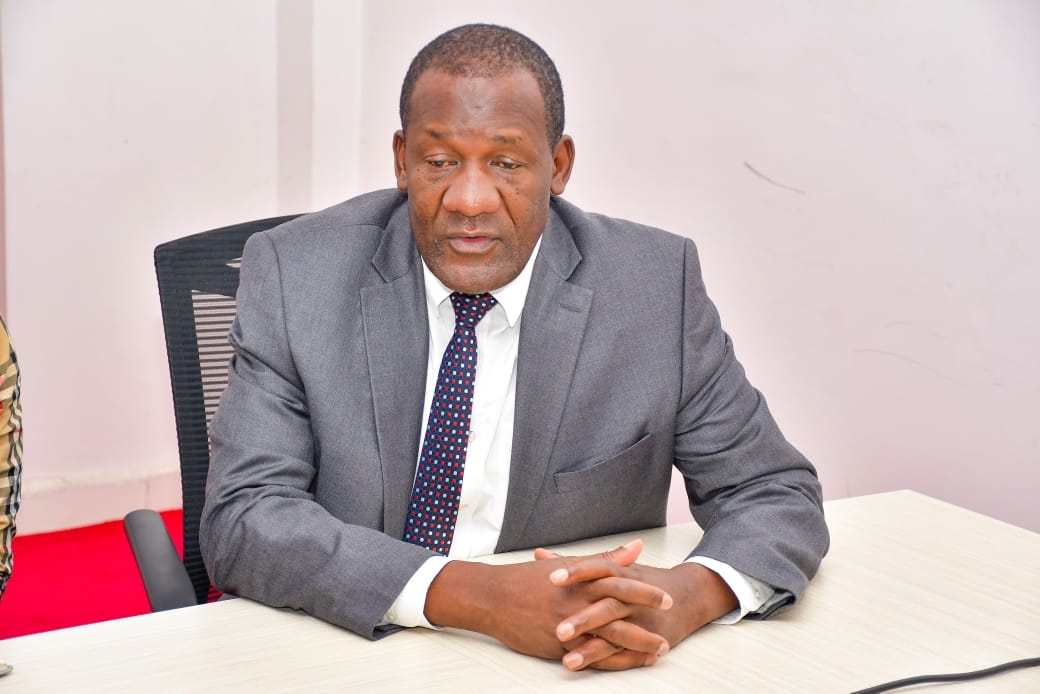The government's move to raise the Road Maintainance Levy by Sh7 has angered fuel consumers, with Public Service Vehicle (PSV) players threatening a protest.
Although the Energy and Petroleum Regulatory Authority (EPRA) lowered fuel prices by an average of Sh1 in the July 14th review, the hike in the road levy against public wish saw the prices stagnate despite a notable drop in global prices.
The immediate former Cabinet Secretary Kipchumba Murkomen had assured Kenyans that alternative means that would not directly affect fuel prices would be sought.
In the review, the regulator cut the petrol price by Sh1, diesel by Sh1.50, and kerosene by Sh1.30.
Consumers in Nairobi are paying a maximum of Sh188.84 for a litre of super petrol, Sh171.60 for a litre of diesel and Sh161.75 for a litre of kerosene.
They could have paid Sh6 less if the Ministry of Transport did not raise the levy from Sh18 to Sh25 per litre of petrol and diesel.
Global oil prices have recorded a consistent six per cent decline in the past four weeks, with the Central Bank showing the benchmark Murban Oil prices declined to $83.28 (Sh10,930) per barrel.
This is from $88.64 (Sh11,634) per barrel on June 2.
The drop is attributed to the current balance in demand and supply of oil, as well as a build-up of oil inventories in countries amid increased geopolitical uncertainties.
Other Global crude oil benchmarks, Brent and West Texas Intermediate (WTI) crude oil have been priced at $84.6 and $79.9, respectively.
Murban Oil Prices are used as a benchmark by EPRA, therefore, the trend in fuel prices in the country directly mirrors the worldwide oil pricing trends.
This has sparked widespread public outrage due to concerns over further financial strain on households and businesses.
On Friday, PSV stakeholders issued a seven-day strike notice, calling for an immediate scrapping of the levy.
The Motorists Association of Kenya (MAK) condemned the hike as illegal and called for its immediate repeal, demanding structural reforms to improve transparency and accountability in the sector.
Peter Murima, the chairperson of MAK, vehemently opposed the increase, stating, “We, the undersigned, reject the illegal increase of the road maintenance levy.”
"This is illegal. It does not only defy public input, it is also an infringement on taxpayers, resulting in an additional Sh140 million daily revenue for the government, which they dub as an “illegal levy.”
Oil and gas expert David Maundu says that the hike denies Kenyans an opportunity to buy the cheapest fuel in more than a year.
"Global fuel prices have been tanking and are expected to hit a two-year low in August. It is bad for the government to ignore public input which could have seen a litre of petrol retail close to Sh180."
A senior official at the Kenya Association of Manufacturers (KAM) told the Star that the sector is reviewing the impact of the additional road levy.
"We are reviewing the impact of this addition on production. Either way, it denies our members the much-needed competitive production advantage that comes with cheaper fuel, currently enjoyed by peers in the global market,'' the official who pleaded to remain anonymous said.
Investment and economics analyst Stellar Swakei wants the Road Maintenance Levy public participation report made public.
"We want to compare what Kenyans wanted/said vs what the government did. Otherwise, it was just formality. Taxes & levies on petrol are almost catching up with the prices,'' Swakei told the Star.
The government has however defended the increment, insisting that it is a normal review conducted since 19194.
The levy was charged at Sh1.5 per litre of fuel products in 1994, Sh2 in 1995, Sh2.7 in 1996 ,Sh4.8 in 1998, Sh5.8 in 1999, before it increased to Sh12 in 2015, and Sh18 per litre in 2016.
In a statement, the Ministry of Transport said it aims to generate over Sh115 billion by June next year from the increased RML to support the maintenance of the country's 239,122-kilometer road network.
It argues that RML has remained at Sh18 per litre since 2016, despite economic changes such as exchange rate fluctuations and inflation. With the new rate, the Board anticipates annual collections to rise from Sh80 billion to Sh115 billion.
This is slightly lower than an earlier proposal to set the levy at Sh28 per litre of petrol and diesel, where the government had projected annual RMLF revenue would increase to Sh129 billion, assuming all other factors remained constant.
“From inception, the Road Maintenance Levy Fund (RMLF) rate has regularly been reviewed upwards in light of changing economic conditions,” the Roads and Transport Ministry said.
According to the ministry, the inflationary environment and the Kenyan shilling’s value depreciation to the dollar, continued to impact construction materials used in road works, the majority being imported.
“To maintain the real value of RMLF at 2016 prices, annual collections, in Finacial Year 2023-24 ought to be at least Sh122 billion,” the report seen by the Star indicates.
The Road Sector Investment Programme (RSIP)-2018-2022, indicates the maintenance backlog due to delayed maintenance was Sh445 billion, which has grown to Sh727 billion this year.
The annual requirement for road maintenance is an average Sh157 billion, meaning the country has to raise more towards the RMLF, which has seen the government increase the levy.


